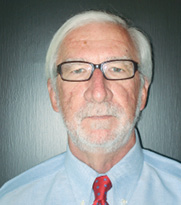While my last two columns focused on “Dominating the Market” and “Initiating a Winning Strategy” by utilizing the principles of Sun Tzu’s “The Art of War,” this column will address similar precepts necessary to execute a strategy with the alacrity necessary to be victorious.
“Field marketers will be prepared for war and will conduct themselves with purpose and urgency...”
With non-stop press releases from virtually every manufacturer about impending plant layoffs, and a quiet desperation setting in as they start to beg and grovel for orders, an ill-founded but understandable pessimism is beginning to descend upon many dealerships and their sales force. Sun Tzu cautioned against such thinking when he wrote:
“When your weapons are dulled and ardor damped, your strength exhausted and treasure spent, neighboring rulers will take advantage of your distress to act. And even though you have wise counsellors, none will be able to lay good plans for the future.”
In a recent Bloomberg Business Week article entitled “The Economic Power of Positive Thinking,” the writer highlights numerous studies that stress the virtues of optimism vs. the perils of pessimism that should be read by every dealer and salesperson who is presently rubbing their crystal ball trying to predict the turnaround.
One study found that “optimistic people work harder, get paid more, get elected to office more often, and win at sports more regularly.” Another study found that happiness and optimism were correlated with higher incomes, measured risk taking and increased productivity. The article concluded by noting that while optimists may underestimate the difficulty in achieving their desired success, this was nothing compared to the self-fulfilling journey of despair that many pessimists will pursue.
This is the time for optimists and overachievers to strike, and to do so with speed and rapidity. Most complacent dealers and their order takers will be in full retreat. They will hunker down in the dealership where they will boo hoo and sob with anybody who will listen to them about the downturn in the market. As I have previously written, these order takers will voluntarily return to their previous job at the fast food restaurant or will be encouraged to seek employment elsewhere by a dealer who will eventually get tired of paying individuals for non-performance.
The overachievers, on the other hand, won’t focus on the 30% who won’t be buying this year, but rather on the 70% who will still be in the market to purchase some product. They will do so by increasing, rather than decreasing, their call frequency on existing customers as well as on competitive end-users and territorial prospects. These scheduled calls will take on an urgency that was missing from far too many sales personnel when commodity prices were at record prices in the not too distant past.
But while the order takers are sitting in the dealership waiting for their next victim to arrive, the field marketer will be out calling on his customers as well as the customers of the order taker. The field marketer knows, as Sun Tzu has written, “Speed is the essence of war. Take advantage of the enemy’s unpreparedness; travel by unexpected routes and strike him where he has no precautions.”
The regrettable back and forth stalemate that characterized much of World War I’s trench warfare is a perfect example of the ramifications inherent in slowly attacking a competitor’s weak point. Although the Allies repeatedly breeched the German trench system, their lack of rapid mobility enabled the Germans to reinforce their troops and repeatedly regain the ground that was lost by effectively counterattacking. The result was a costly battle of attrition that went on for years. Field marketers will not be waiting for an economic turnaround nor for their competitors to respond to the marketplace, but will instead attack with dispatch.
Field marketers will be prepared for war and will conduct themselves with purpose and urgency. They will capitalize on their dealership’s competitive advantage as outlined in the previous column while simultaneously utilizing their customer profile data and formulating a meaningful call schedule. They will pursue competitive customers knowing that the relationship they establish today will yield a sale tomorrow. He/she will do so for as Sun Tzu has written, “Generally, he who occupies the field of battle first and awaits his enemy is at ease; he who comes later to the scene and rushes into the fight is weary.”
While I have repeatedly cautioned in these pages about chasing market share, I firmly believe the best time to increase market share is in a down market. Not because the manufacturer wants you to, but because it is the easiest and least costly time to do so. While others are in retreat, you need to strike and strike quickly. For as Sun Tzu has written, “He whose advance is irresistible plunges into his enemy’s weak positions; he who in withdrawal cannot be pursued moves so swiftly that he cannot be overtaken.”







Post a comment
Report Abusive Comment